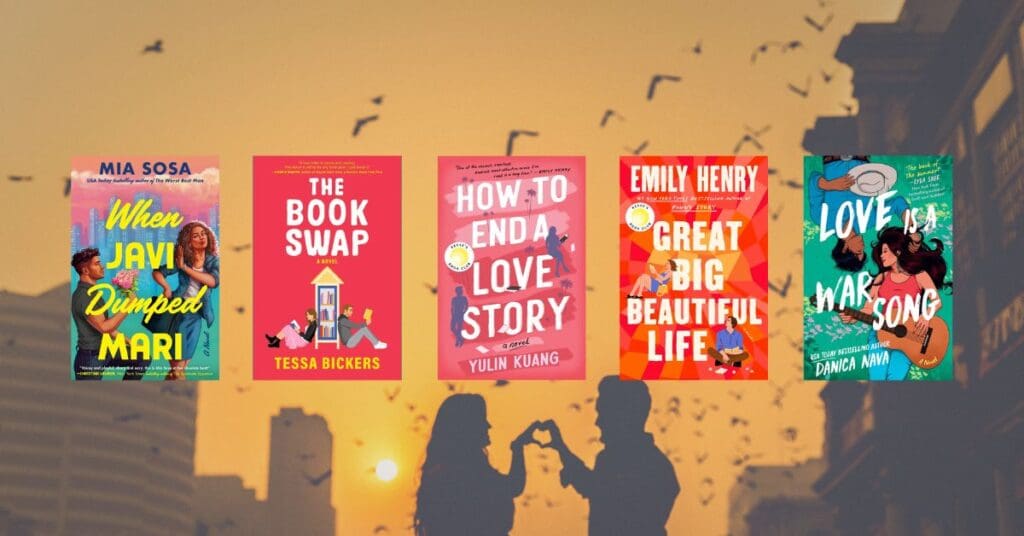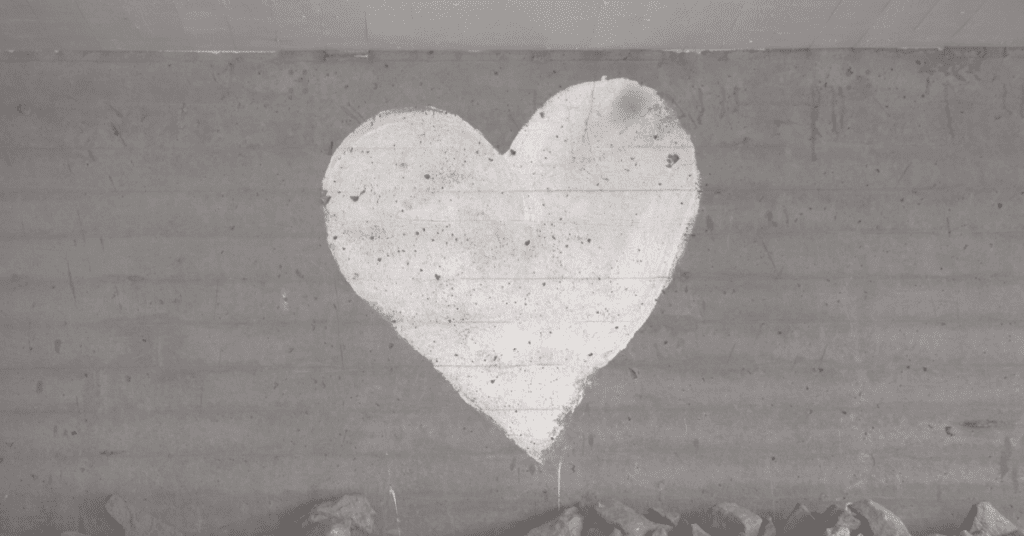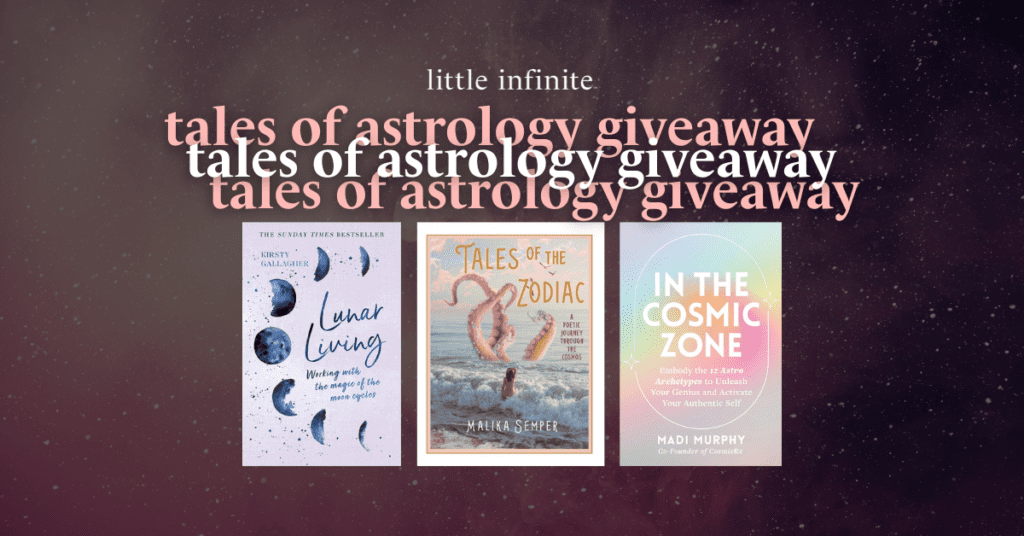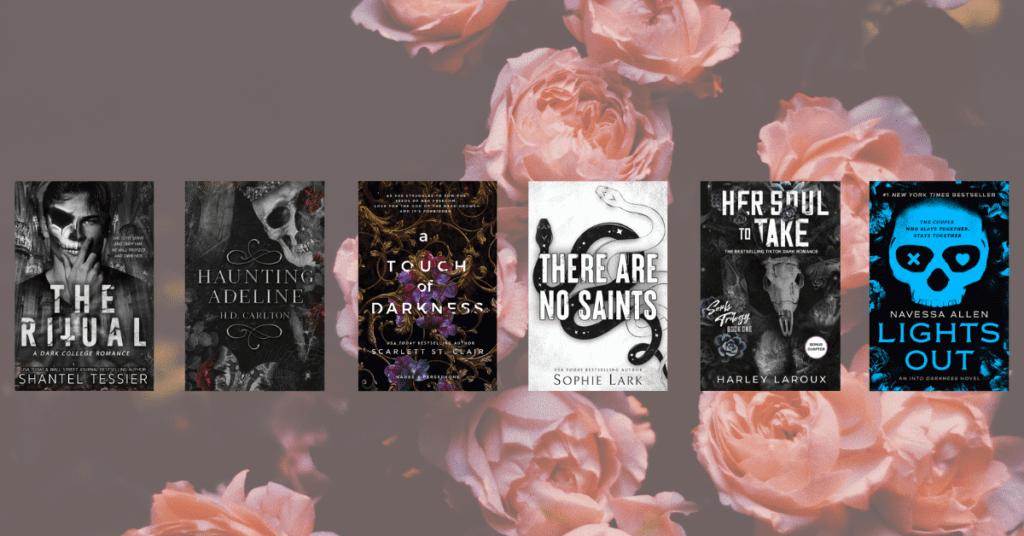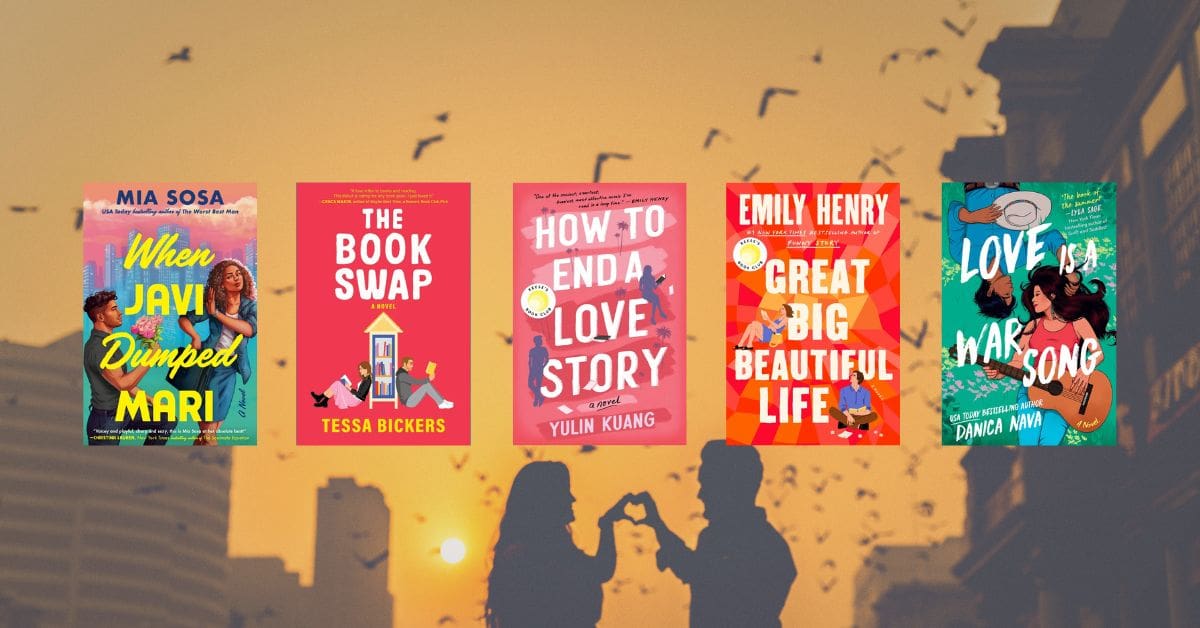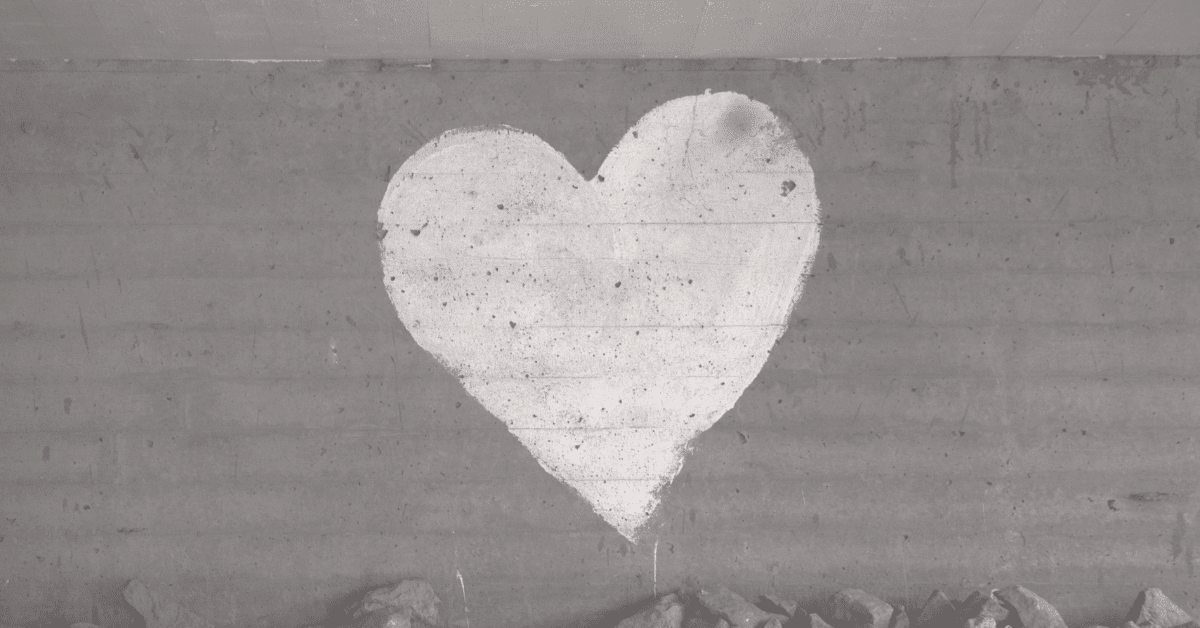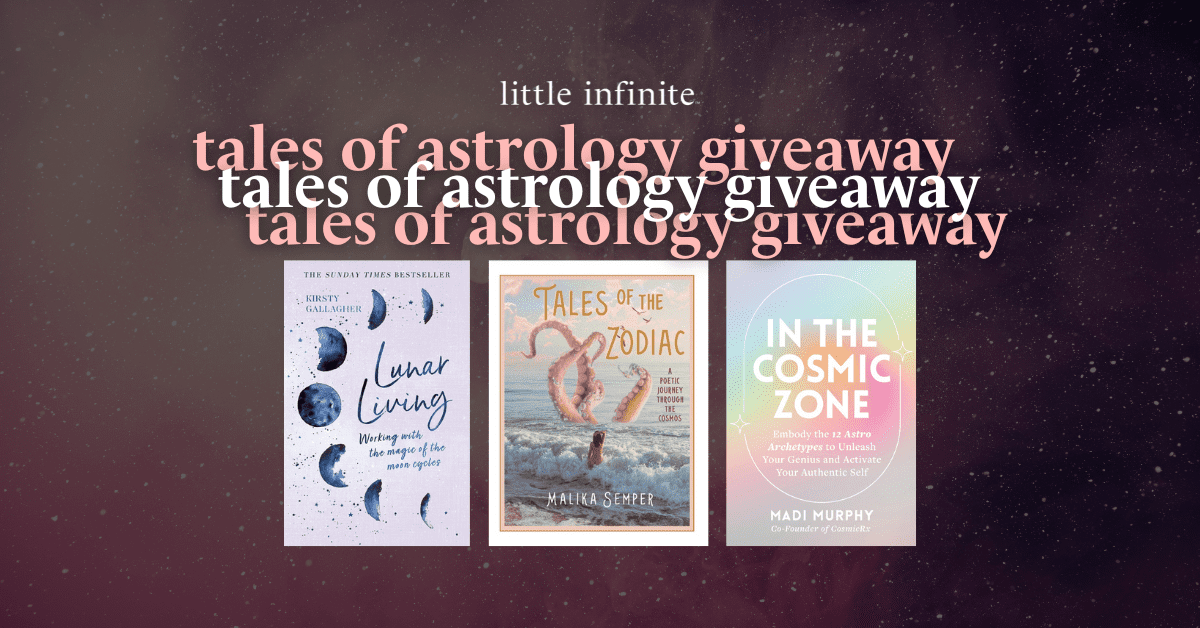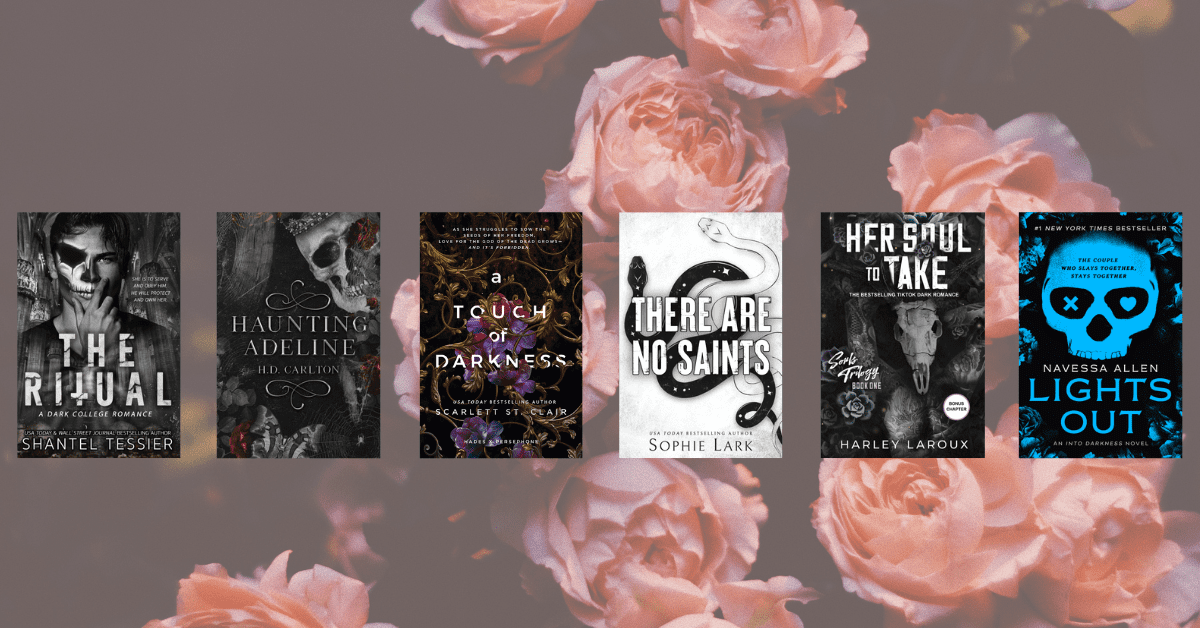little infinite Author Series Interview Questions – Elizabeth Jarrett Andrew
Author of The Release: Creativity and Freedom After the Writing Is Done
The release is the stage when writers share the soul of their project–its gift. Here’s how to thrive and best serve your work once the writing is done.
In this installment of li voices, we’re honored to feature Elizabeth Jarrett Andrews—an award-winning author, teacher, and proud member of the LGBTQ+ community. Known for her insightful approach to the writing process, Andrews’ latest book, The Release, offers a refreshing invitation to writers: step away from the relentless pursuit of polished outcomes and rediscover the joy of creative exploration. Through her guidance, authors can cultivate a practice that nourishes mind, heart, and body, allowing their work to flourish authentically and free from external validation.
For our little infinite audience, who thrive on diverse perspectives and the vibrant language of poetry, Andrews’ insights promise a deeper connection to the essence of creativity. In this conversation, she shares her thoughts on process over product, the transformative power of artistic play, and how returning to original delight can liberate writers from the confines of expectation.
About Elizabeth Jarrett Andrew:

I want to highlight two authors whose work has radically changed my writing practice over the last decade. The first is Lewis Hyde, who wrote The Gift: How the Creative Spirit Transforms the World. It’s a tough read but here’s the gist: There’s a mystical current flowing through creativity. When writers receive a spark of inspiration, when we’re propelled by unquenchable longing, when we experience tears and surprises, when we sense ourselves being healed or renewed or clarified through our writing, and when our readers are stirred by our stories, the “gift” moves through our creative process. We can’t manufacture any of this. Whether we call this gift the Muse or mystery or whatever, we writers need to tend it if we want our writing to thrive.
Then I read Robin Wall Kimmerer’s work, especially Braided Sweetgrass and “The Serviceberry: An Economy of Abundance,” and was blown over. Kimmerer, an enrolled member of the Citizen Potawatomi Nation, basically says that the natural world functions as a gift economy. Sunlight becomes berries, which become food and energy, which then might fuel me to write a poem. Her understanding of the gift helped me see my writing from a much wider perspective. My creative energy is connected to the earth’s creativity. I love that!
Q: What is the biggest risk you’ve taken with your writing? What did you learn from that experience?
In my early twenties, I wrote as a way to discover my identity. When I began to realize that I was drawn to both men and women, I knew I needed to revisit all the stories I’d told myself about growing up to see if they were true. And they weren’t, so I set about revising them. The book that emerged from that journey is Swinging on the Garden Gate: A Memoir of Bisexuality & Faith. Putting that intimate story down on paper is the biggest writing risk I’ve ever taken. Sharing it comes a close second. But the gifts of that project were huge, and continue to bear fruit 25 years later.
About Her Book:

The Release calls attention to the soul of writing, which both is and isn’t connected to our own souls. It offers a means of caring for that soul once the writing is finished. When we’re done, many of us writers send our creations out into a market-driven publishing industry that can often be soul-crushing. But no matter what we do with our work (publish it traditionally, self-publish, share with friends, put it in a file drawer), we can make choices that uplift the human spirit and exercise real freedom. The Release inspires creative resilience in writers; it helps them tend the gifts in, through, and beyond the writing process.
Q: If you could only choose one aspect, what do you hope someone takes away from this book?
Everyone—anyone—can find creative fulfillment. We don’t have to wait for publishing success or literary kudos or others’ approval to feel satisfied. There’s an abundance of ways our efforts can flourish, so long as we’re willing to stay true to the creative spirit.
If we’re growing and changing as we write, which we usually are, there’s actually two products at the end: the piece of writing, and who we’ve become for having written. Creativity’s gifts have deposited themselves in both places. So then we can continue moving the gift through our lives as well as by sharing our work. If we keep our sights trained on the gift, we can continue being in dynamic relationship with inspiration as well as see our endeavor impact real people in real relationships.
Elizabeth Jarrett Andrew’s Writing Process:
Q: What was the highlight of writing this book?
Early on I put out a question to my writing clients and friends: Does the life-spark of your creative work continue to burn even if no one reads it? The answers that came back were amazing. One student said the presence of her unpublished memoir helps keep her life on course.
An essayist told the story of having a piece accepted in a literary journal that then folded; not only did the experience of working with an editor serve her well, but she also felt the essay helped her be more compassionate. An artist shredded her journals and incorporated the strips into visual art. And then I read many examples of radical revision—a friendship forming between a writer and the editor who rejected his work for decades, the rejected novel that became successful short stories, the discarded early novel resurrected decades later… I love hearing stories that broaden my sense of what’s possible!
Q: What is your creative process like? If you could dish on the most unique part of your writing process, what would it be?
Slow and steady. Lots of time with my journal, lots of time day-dreaming out the window. I excel at mucking around on the page, writing horrible drafts. My secret sauce is revision. Because I’ve taught revision for decades and have written a book on it (Living Revision), I have a gazillion tools in my belt for seeing a shitty draft with new eyes. I put the pages aside and write a second draft without looking at the first. I ponder what’s going on in a notebook. I’ll cut it up with scissors and tape it back together. Then outline it or draw images that represent its shape. Basically, I let myself play, without any deadline. It’s great fun. How lucky am I that this is my work?!
Her Advice:
Q: What does writer’s block mean to you? What advice do you have for writers who experience writer’s block?
Usually when writers get stuck, it’s because we’re too focused on the end-game. A friend of mine is a great example. We were on a walk when she described in detail the memoir she wanted to write, but wouldn’t. Why not? Her response: “It wouldn’t be good enough. Besides, what would I do with it?” In her mind, writing needed to be artful or useful or successful to make the process worthwhile. She aborted the whole project before it even began.
I think of this as “process bypassing.” The writing process is, itself, worthwhile. It’s a great adventure! It’s exciting, full of discovery, sparkling with insight. If we’re willing to be messy, stupid, heretical, and ugly in a draft, a brilliance we didn’t know we were capable of sometimes—often—shows up. If you plunge into the process head-first, you’ll be surprised by what emerges. But if you never begin, those jewels aren’t available.
My advice is to trust the process. That’s hard to do, so I’ll add another suggestion: Dismiss the audience. For your first three drafts, every time you imagine your mother or a New York Times reviewer or your high school English teacher reading what you’re writing, bribe them off by saying you’ll invoke them later, when you’re ready to face an audience. For now, write for yourself. Write for the sake of your story. There’s always time later to consider what others’ responses.
Q: What do you think makes a good book?
Does love shine through the pages? Does the author love her characters, no matter how nasty they seem? Is the book’s worldview both realistic and compassionate? Do I sense hard-earned wisdom infusing the narrator’s voice? Do I close the covers feeling expanded beyond my usual smallness?
I want a book to take me on a journey to new dimensions of my own humanity. A gripping narrative or elegant prose or witty reflections make for a thrilling read, but they’re the icing. The cake for me are books with big hearts.
 Q: Where can we find you?
Q: Where can we find you?
LinkedIn:
https://www.linkedin.com/in/elizabeth-jarrett-andrew-085a264/
Facebook:
https://www.facebook.com/elizabethjarrettandrewpage
Instagram:
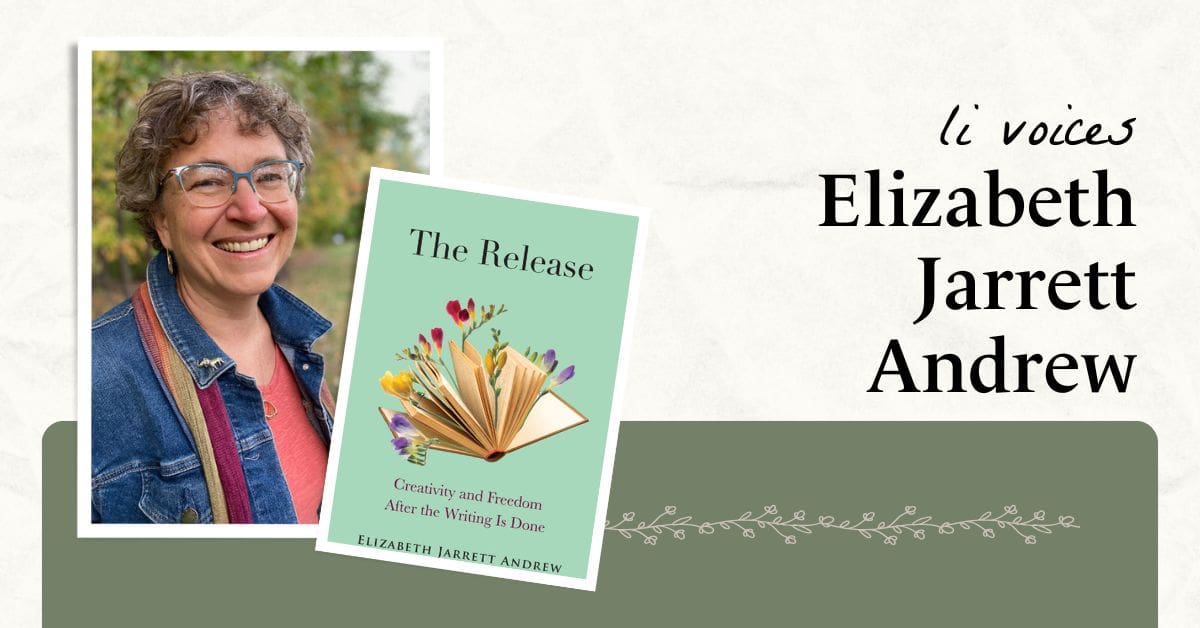
 Q: Where can we find you?
Q: Where can we find you?